DNVN - "Dual" transformation, namely green transformation and digital transformation, is considered mandatory if businesses and countries want to participate in the global supply chain. However, in greening and digitalization activities, experts recommend ensuring balance for sustainable development.
"Double" conversion is required
At the seminar "Policy innovation for a green and digitally updated Asia - Pacific " within the framework of the ACCA Asia - Pacific forum on May 28 in Hanoi, Ms. Claudia Anselmi - General Director of Hung Yen Garment and Dyeing Company, and Vice President of the European Chamber of Commerce in Vietnam (EuroCham) said that when practicing ESG and sustainable development strategies, businesses face many difficulties, including 3 main obstacles.
The first obstacle is related to knowledge and understanding. In fact, many businesses find this a very new issue, not all businesses have resources and personnel with expertise in this issue.
Second, the initial investment cost is too high. ESG practice requires investment in machinery, technology, energy equipment, etc. All of these are complex systems, requiring a lot of capital, calculating the return on investment rate, and taking a long time before going into operation, etc.
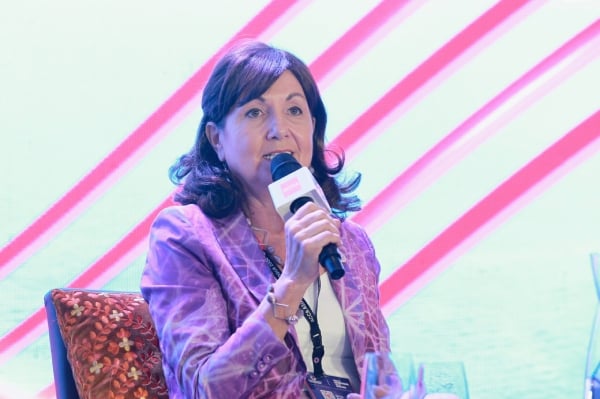
Ms. Claudia Anselmi - General Director of Hung Yen Garment and Dyeing Company, Vice President of European Chamber of Commerce in Vietnam (EuroCham).
Third is access to green financial capital. In Vietnam, capital flows for green credit only account for about 4-5% of the total credit capital market, which is a very low figure. This is a real challenge for businesses, because capital is the decisive factor for investment, business and development decisions of businesses.
Despite facing many obstacles, in order to compete in the global economy in the context of great competitive pressure, businesses are forced to transform "green" and "digital".
In addition, to have a certain position in the supply chain, sustainability standards are also a factor that must be realistic. This is a mandatory requirement for businesses to move towards green and digital transformation.
“If we didn’t do that, we risked going out of business,” said Claudia Anselmi, stressing that sticking to a sustainability strategy from the start made it easier for the company to comply with regulations in markets like Europe.
Keyword "balance"
Meanwhile, Mr. Hu Jie - Professor of Practice, Director of FinTech Innovation Center (Nanjing), Director of Southeast Asia Center, Shanghai Advanced Institute of Finance emphasized the balance in greening and digitalizing the economy.
He believes that each country must balance between different goals, one side is greening the economy, the other side is economic development.
"Countries are aiming for the ultimate goal of being greener, but their approaches are different. If 10 years ago we were talking about environmental pollution and resource depletion, now many businesses have begun to regret trading the environment for growth.

Speakers discussed at the panel discussion "Policy innovation for a green and digitally updated Asia-Pacific".
This is why balancing development factors requires not only focusing on short-term goals but also having methods suitable for long-term growth. Each country has different conditions and considerations and they must choose different methods and roadmaps to achieve balance," the expert emphasized.
Mr. Hu Jie also recommended paying attention to the interaction between digital economic factors and sustainable growth.
“If not managed carefully, digitalization can cause a lot of damage to sustainable development. Therefore, technology development must go hand in hand with the principles of sustainable development.”
Sharing the same view, Ms. Julia Tay - Asia-Pacific Public Policy Leader, EY said that there is an intersection between sustainability and technology. Technology, artificial intelligence (AI) serves sustainability and vice versa.
"Two or three years ago, when the COVID-19 pandemic broke out, countries increased their protection of sovereignty, which somewhat affected the way we communicate and connect with each other. At this forum, there are many leaders and management units, I hope that policymakers will closely follow the steps in the sustainable strategy," said Ms. Julia.
According to Ms. Julia, with the sustainability story in Asia - Pacific, it is currently necessary to apply from the top down, that is, policies are issued and businesses comply, because the scope and level of implementation are still diverse, many stakeholders participate in the system, so policy makers must be the ones to set standards and steps appropriate to the period.
“For example, in Singapore, listed companies have a two-year period to comply with ESG reporting requirements. China also has a regulatory testing period to give companies enough time and data to collect reporting data. Some other countries use regulations related to practices to monitor and promote compliance. When companies have a direction and roadmap, they can implement ESG standards in a rolling manner,” Ms. Julia Tay shared.
Thu An
Source: https://doanhnghiepvn.vn/chuyen-doi-so/kinh-te-so/can-bang-hoat-dong-chuyen-doi-kep-de-phat-trien-ben-vung/20240528045627019




![[Photo] The Standing Committee of the Organizing Subcommittee serving the 14th National Party Congress meets on information and propaganda work for the Congress.](https://vphoto.vietnam.vn/thumb/1200x675/vietnam/resource/IMAGE/2025/11/19/1763531906775_tieu-ban-phuc-vu-dh-19-11-9302-614-jpg.webp)


![[Photo] Prime Minister Pham Minh Chinh and his wife meet the Vietnamese community in Algeria](https://vphoto.vietnam.vn/thumb/1200x675/vietnam/resource/IMAGE/2025/11/19/1763510299099_1763510015166-jpg.webp)


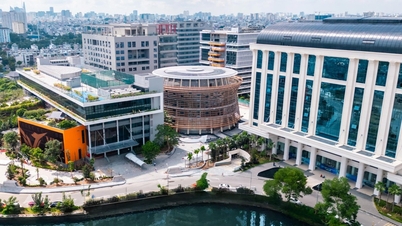










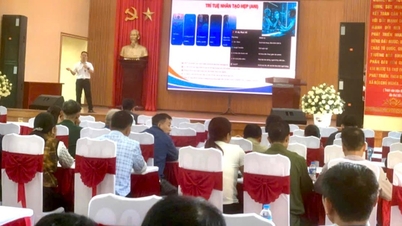











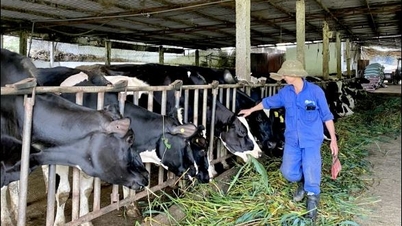



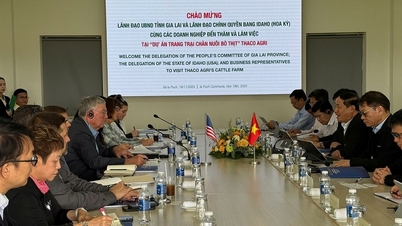

![[Photo] General Secretary To Lam receives Slovakian Deputy Prime Minister and Minister of Defense Robert Kalinak](https://vphoto.vietnam.vn/thumb/1200x675/vietnam/resource/IMAGE/2025/11/18/1763467091441_a1-bnd-8261-6981-jpg.webp)
![[Photo] General Secretary To Lam receives CEO of AP Moller-Maersk Group, Denmark](https://vphoto.vietnam.vn/thumb/1200x675/vietnam/resource/IMAGE/2025/11/18/1763462288958_a3-bnd-8222-2510-jpg.webp)


































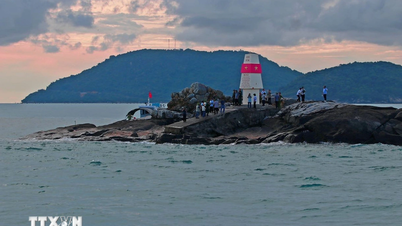

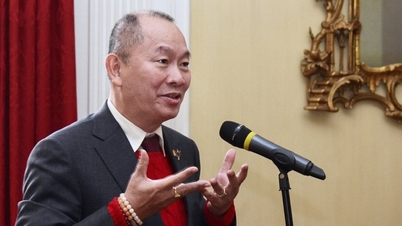
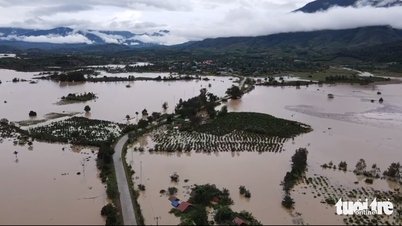






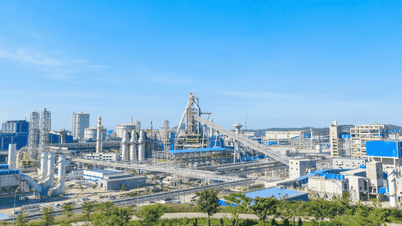

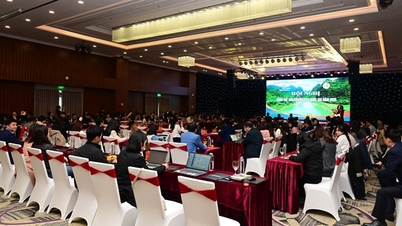


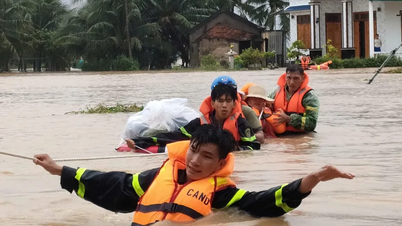
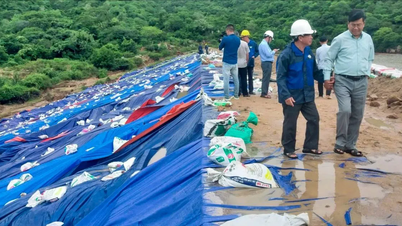

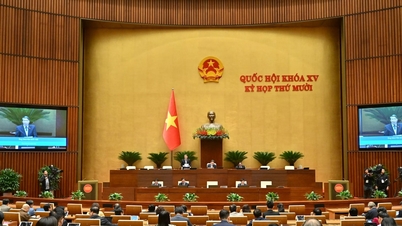


















Comment (0)